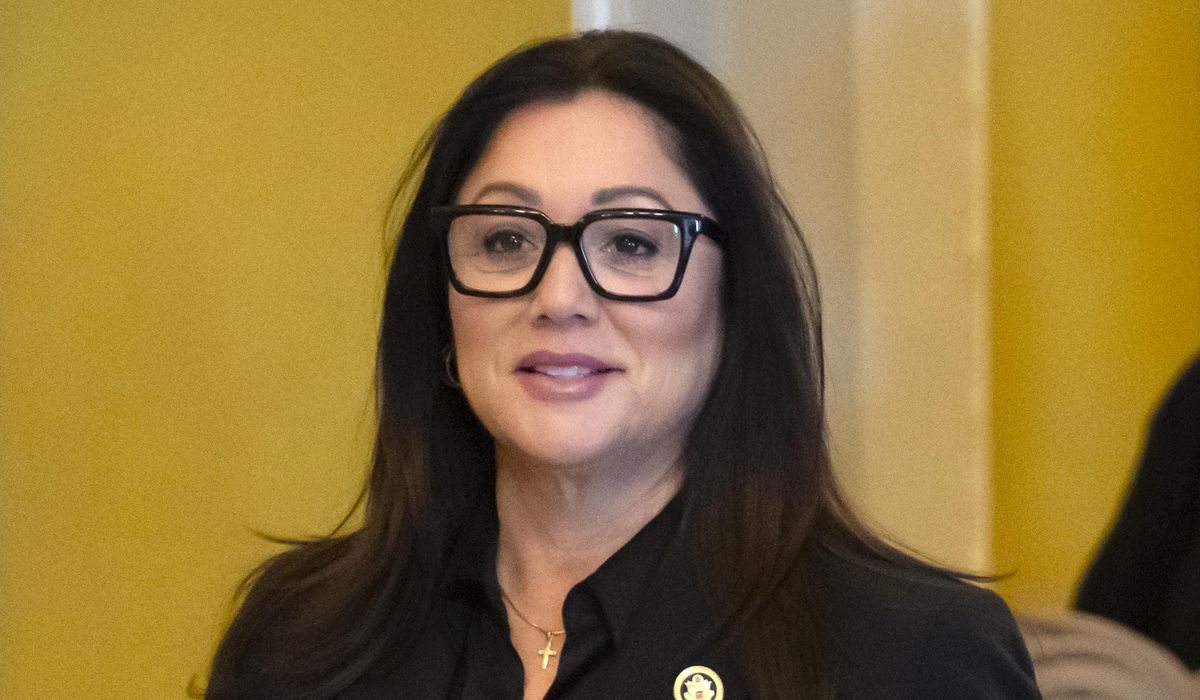


Lori Chavez-DeRemer testified at her confirmation hearing Wednesday she is “uniquely prepared” to lead the Department of Labor because her dual support from industry and labor reflects the broad coalition of businessmen, blue-collar Americans and minority workers who powered President Trump’s election victory.
Ms. Chavez-DeRemer, a former GOP congresswoman from Oregon, is less polarizing than many of Mr. Trump’s Cabinet nominees, but she is working to reassure Republicans wary of her union ties and Democrats who say billionaires have too much sway over the U.S. economy.
Teamsters President Sean O’Brien backed her nomination in November, underscoring her support from labor even as Mr. Trump pushes tax cuts and other pro-business policies.
“You’re in a unique position to build a bridge between these two groups to benefit all workers,” Sen. Bill Cassidy, Louisiana Republican, said at the outset of the hearing before the Senate Health, Education, Labor and Pensions Committee.
However, he wanted assurance that Ms. Chavez-DeRemer would support state “right-to-work” provisions that let workers decline membership in a union.
Mr. Cassidy was worried about her prior support for the PRO Act, a piece of labor legislation that would have weakened right-to-work laws in about half the states.
Ms. Chavez-DeRemer said the bill wasn’t perfect, and she is no longer a congresswoman from Oregon.
“If confirmed, my job will be to implement President Trump’s policy vision,” Ms. Chavez-DeRemer said.
Sen. Bernard Sanders, Vermont independent, urged Ms. Chavez-DeRemer to focus on income inequality and raise the minimum wage.
“We need a labor secretary who, in fact, is going to be a champion of working families,” he said.
Ms. Chavez-DeRemer said raising the minimum wage might be right for some places and not right for others.
“I know that local communities, states, determine what’s best for their economy,” Ms. Chavez-DeRemer said. “What we don’t want to do is shock the economy.”
Mr. Trump’s nominees are speeding through the Senate and implementing his agenda. His picks to lead defense, health and national intelligence agencies made it across the finish line despite early concerns about the nominees.
Ms. Chavez-DeRemer is relying on a balancing act to get to confirmation.
She supports investments in non-traditional education programs beyond four-year college degrees and said labor laws should be updated to bolster working people.
“In the last four years, prices have risen, wages have fallen and 78% of Americans do not feel confident that their children will lead better lives,” Ms. Chavez-DeRemer said.
But she also said states should be allowed to strike their own paths on labor policy, and she tried to court GOP votes by praising Mr. Trump’s ability to lead a diverse coalition of voters.
Ms. Chavez-DeRemer served as mayor of Happy Valley, Oregon, near Portland from 2011 to 2019 and served one term in the House. She ran for reelection last year but was defeated by Democrat Janelle Bynum.
Weeks later, Mr. Trump selected Ms. Chavez-DeRemer for labor secretary.
“Lori has worked tirelessly with both Business and Labor to build America’s workforce, and support the hardworking men and women of America,” Mr. Trump said in November on Truth Social. “I look forward to working with her to create tremendous opportunity for American Workers, to expand Training and Apprenticeships, to grow wages and improve working conditions, to bring back our Manufacturing jobs. Together, we will achieve historic cooperation between Business and Labor that will restore the American Dream for Working Families.”
• Tom Howell Jr. can be reached at thowell@washingtontimes.com.
